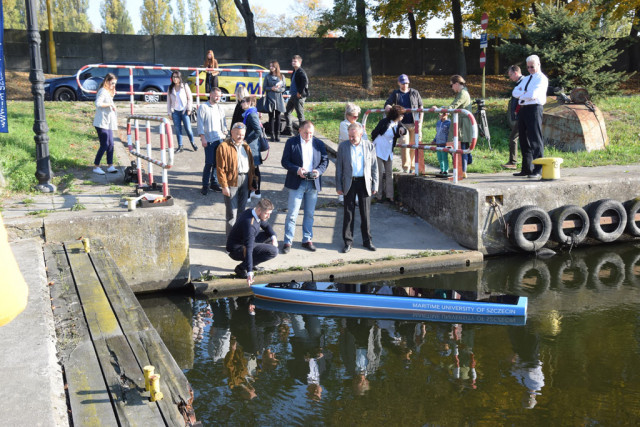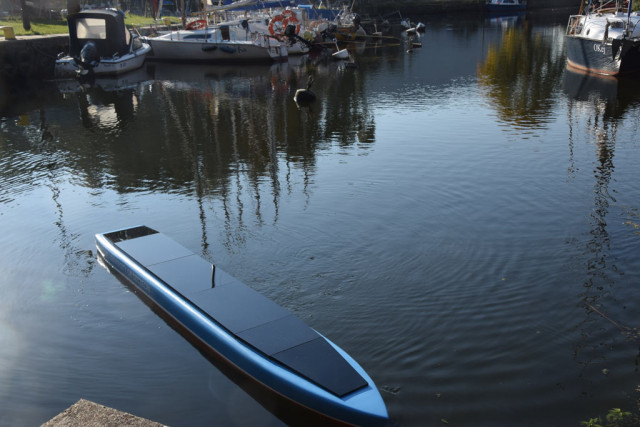The prototype of an autonomous vessel was created in the Department of Naval Architecture and Shipbuilding. The vessel model is 3.15 m long, 0.46 m wide and has a draught of 0.17 m.

- We’re presenting the effects of several months of our work: the idea came up at the beginning of the year - said Professor Tadeusz Szelangiewicz, the head of the Department.
Launching of the vessel is the end of the first stage of the construction consisting of:
- design and construction of the model,
- equipping the model with propulsion: propellers on the bow and the hull,
- installation of power supply,
- installation of remote, wireless (radio) control and telemetry system,
- practical verification - on water - of the operation of all vessel systems.
The water trials were also attended by an assistant lecturer from the Department of Naval Architecture and Shipbuilding, Karol Sugalski, responsible for the design and construction of the model, as well as Maciej Szelangiewicz, responsible for electrical wiring.
The subsequent stages of the construction and tests of the autonomous vessel model include:
- installation of sensors for measuring the position, speed, course and distance from the harbour or other objects,
- development of a mathematical model for vessel control and its verification on water,
- development of algorithms and software for autonomous vessel control,
- construction and installation of an autonomous vessel control computer system,
- development of the procedures for communication between autonomous vessels or with manned vessels
- and continuation of research on a real ship model as well as on a computer simulator which is also to be created in the Naval Architecture laboratories.
MUS Rector Wojciech Ślączka, who was present during the tests, emphasised that soon more reduction models of vessels, to be used in research and development of new technologies, are to be made in the Centre for Operation of Floating Objects right next door. The Centre is to be built next to the Marine Rescue Training Centre, where the unmanned vessel model was launched.
- Today, we’re launching the first model created at the Maritime University and, soon, we will design and build more reduction models in the Centre for Operation of Floating Objects. These will be large-scale models with length of above 10 metres - said Rector Ślączka.
Naval Architecture students, who began their education in this field at MUS three weeks ago, will take part in the subsequent stages of project works, research and development. This is the first year when this field of study is being delivered.



